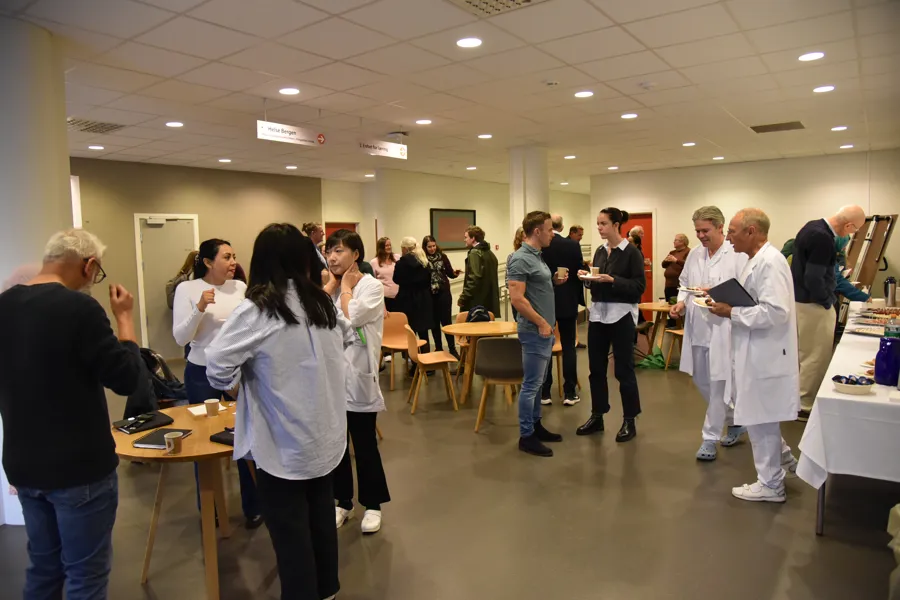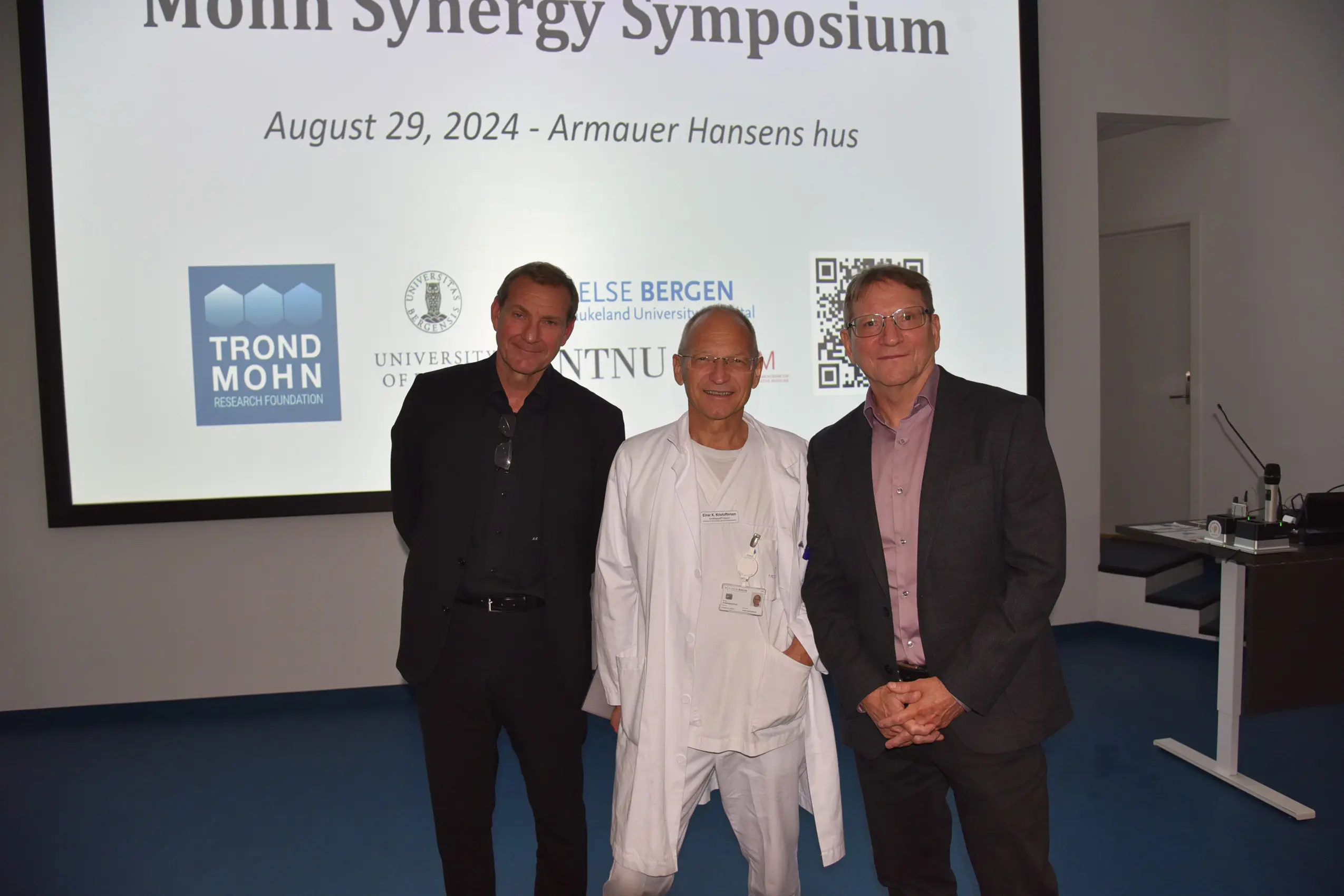New Research Neighbours in Bergen
A promising collaboration on the horizon
Researchers from three Mohn-funded research centres will soon become neighbours in the BB building, marking the establishment of a new stem cell laboratory.

Photo: Paul André Sommerfeldt/UIB
At the "Mohn Synergy Symposium" last week, they got to know each other better and discussed future collaboration opportunities.
This fall, researchers from the Mohn Research Center for Regenerative Medicine (MRCRM), the Mohn Research Center for Psychotic Disorders (MRCP), and the Mohn Research Center for the Brain (MRCB) at the University of Bergen and Helse Bergen will come closer together. This is happening in connection with establishing the Bergen Center for Medical Stem Cell Research on the 7th floor of the BB building.
The Synergy Symposium is the first of its kind and marked the beginning of what could become closer cooperation between the researchers. All of them have received support from the Trond Mohn Research Foundation, a foundation that has been crucial in supporting research in the region.
Hoping for Magic

Photo: Paul André Sommerfeldt/UIB
Vibeke Vold, Head of Research at Haukeland University Hospital, expressed gratitude for the foundation's support.
-The foundation's contribution allows us to try out new methods and improve our research. We are pleased to continue this work together.
-As the famous author Roald Dahl once said: 'And above all, watch with glittering eyes the whole world around you because the greatest secrets are always hidden in the most unlikely places. Those who don't believe in magic will never find it.' This perfectly captures the spirit of what we are witnessing here today. When skilled researchers from different fields collaborate, they can uncover hidden magic and create something truly extraordinary,' said Vibeke Vold in her greeting.
Oddveig Åsheim, Senior Advisor at the Trond Mohn Research Foundation, also gave a speech, followed by presentations from the three Mohn centre leaders. The open part of the Synergy Symposium ended with talks from some of the top researchers from each centre.
Good Opportunities to Strengthen Research and Develop New Treatment Methods
After the open part at Armauer Hansens Hus, the core staff from each Mohn center met in a closed meeting. Over good food and coffee, they discussed opportunities for collaboration, overlapping fields of interest, and potential synergies between the three centres.
-As Oddveig Åsheim from TMF emphasized in her greeting during the open session, one of the main criteria for grants from TMF is the ability to collaborate. We are very pleased that the closed meeting reflected this. New collaborations and projects develop more easily when people know each other a bit, says Elise Aasebø, who, together with Professor Erik Johnsen and Senior Researcher Gyrid Nygård, initiated the Synergy Symposium. The moderator during the closed session was Gyrid Nygård.
-It was a very enjoyable meeting. There were good contributions from the various centers, and we have now laid a good foundation for further discussions. Hopefully, this Synergy Symposium will result in exciting joint research between the three Mohn centers. We look forward to the continuation, she says.

Photo: Paul André Sommerfeldt/UIB
Einar K. Kristoffersen, Head of MRCRM and co-organizer of the symposium, is very positive: "By bringing together researchers from different fields, we hope to find new solutions that can benefit many different patient groups. Several of the researchers involved are already in the process of developing promising cell-based therapies. The collaboration between the three Mohn centres and the establishment of the 'Bergen Center for Medical Stem Cell Research' provide good opportunities to strengthen research and develop new treatment methods."
Erik Johnsen is the Head of MRCP and researches psychotic disorders. Today's available medications primarily treat the symptoms of these disorders, not the underlying causes.
-In close dialogue with the users, and by combining our patient-centered focus with the latest advances in advanced stem cell research, I believe the treatment of serious mental disorders could change significantly for the better in the coming years, he says.
This article was produced by Thomas Abrahamsen, at the Communication Department, Haukeland University Hospital.


















